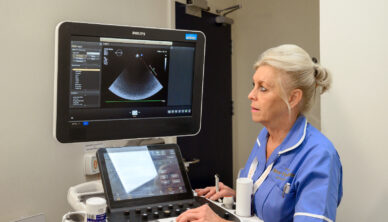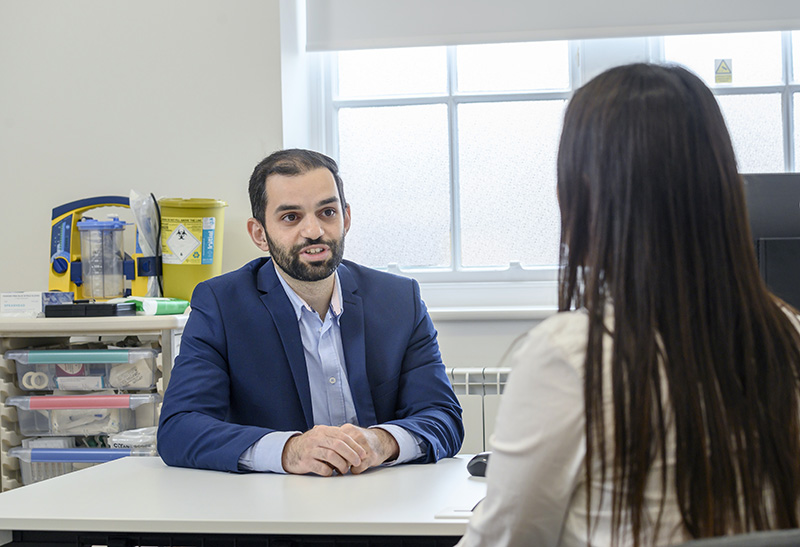Contents
Valvular Heart Disease

Valvular heart disease affects the heart’s valves, disrupting normal blood flow and straining the heart.
What is Valvular Heart Disease?
The heart has four valves—the aortic, mitral, tricuspid, and pulmonary valves—ensuring blood flows in the correct direction. Valvular heart disease occurs when one or more of these valves become:
- Narrowed (Stenosis) – Reducing blood flow
- Leaky (Regurgitation) – Allowing blood to flow backward
- Improperly Closed (Prolapse) – Preventing proper sealing
If left untreated, valvular disease can lead to heart failure, arrhythmias, and serious complications.
Signs & Symptoms
Symptoms may vary depending on the affected valve but often include:
- Shortness of breath – Difficulty breathing, especially during activity or lying down
- Fatigue & Weakness – Feeling unusually tired, even with minimal exertion
- Chest Pain or Discomfort – Pressure or tightness in the chest
- Irregular Heartbeat (Arrhythmia) – Heart palpitations, fluttering, or skipped beats
- Dizziness or Fainting – Feeling lightheaded or experiencing blackouts
- Swelling (Edema) – Fluid buildup in the ankles, feet, or abdomen
If symptoms worsen, seek urgent medical attention to prevent complications.
Potential Causes & Risk Factors
Several factors can contribute to heart valve disease, including:
- Congenital Defects – Valve abnormalities present from birth
- Rheumatic Heart Disease – Damage from untreated strep infections
- Aging & Calcium Buildup – Hardening (calcification) of valve tissue
- Infections (Endocarditis) – Bacterial infections affecting heart valves
- Heart Attacks & High Blood Pressure – Straining the heart and valves
- Autoimmune Diseases – Conditions like lupus or rheumatoid arthritis
- Radiation Therapy – Long-term effects of chest radiation
Types of Valvular Heart Disease
Aortic Stenosis
- The aortic valve narrows, restricting blood flow from the heart.
- Common in aging adults due to calcium buildup.
Mitral Regurgitation
- The mitral valve fails to close properly, causing blood to leak backward.
- Often results from mitral valve prolapse or heart damage.
Mitral Stenosis
- The mitral valve becomes too tight, limiting blood flow.
- Often linked to rheumatic fever or calcification.
Aortic Regurgitation
- The aortic valve doesn’t close fully, allowing blood to leak back into the heart.
- Can be caused by infections, high blood pressure, or congenital conditions.
Tricuspid & Pulmonary Valve Disease
- Less common but can lead to swelling, fatigue, and heart strain.
Diagnosis
At The Royal Buckinghamshire Hospital, we use cutting-edge cardiac tests to assess valve function, including:
- Echocardiogram (Heart Ultrasound) – A key test to examine valve structure and function
- Electrocardiogram (ECG/EKG) – Checks heart rhythm and electrical activity
- Chest X-Ray – Detects heart enlargement or fluid buildup
- Cardiac MRI – Provides detailed imaging of heart valves
- Stress Testing – Assesses heart function under physical exertion
- Cardiac Catheterization – Measures pressure and detects valve abnormalities
Early detection allows for better management and treatment options.
Treatment Options
Lifestyle & Medical Management
- Regular Monitoring – Routine check-ups to track disease progression
- Heart-Healthy Diet – Low sodium, balanced nutrition for heart function
- Medication Management – Treating high blood pressure, arrhythmias, or fluid buildup
- Avoiding Smoking & Alcohol – Reducing strain on the heart
Medications for Valvular Disease
- Diuretics – Help reduce fluid buildup and ease heart strain
- Beta-Blockers & ACE Inhibitors – Manage blood pressure and heart rate
- Anticoagulants (Blood Thinners) – Prevent clot formation, reducing stroke risk
Surgical & Interventional Procedures
- Balloon Valvuloplasty – A minimally invasive procedure to widen narrowed valves
- Valve Repair Surgery – Fixing a damaged valve without replacing it
- Valve Replacement Surgery – Replacing faulty valves with artificial or biological valves
- Transcatheter Aortic Valve Replacement (TAVR) – A cutting-edge, minimally invasive option for aortic stenosis
Monitoring and Long Term Management
Patients with valvular heart disease require ongoing monitoring to prevent complications. At Royal Buckinghamshire Hospital, we offer:
Regular Echocardiograms – Tracking valve function over time
Medication Adjustments – Ensuring the most effective treatment plan
Specialist Cardiac Care – Personalized follow-up appointments
Early diagnosis and treatment can prevent severe complications and improve heart health.
Arranging To Visit A Private GP

At Royal Buckinghamshire Hospital, we provide fast diagnosis, expert treatment, and ongoing care to support recovery and reduce future risk. Make an appointment with one of our private GPs who can refer you to our specialist cardiologist. Appointments are available to everyone and can often be booked for the same day. There is no need to be registered with our The Royal Buckinghamshire Hospital, or live locally.
If you have insurance which covers a GP visit, we can in most cases invoice the insurer directly. Where you are paying directly, the cost for a 30 minute consultation is £100.
Any additional costs will always be discussed. They could apply if you are referred for an MRI scan, or to a consultant, or for other agreed decisions to support your health.
Our Resident Private GP
Dr Chamali is welcoming and highly experienced. He offers his patients sound diagnosis and treatment, along with individual care focused on their future health.
31 March 2025




